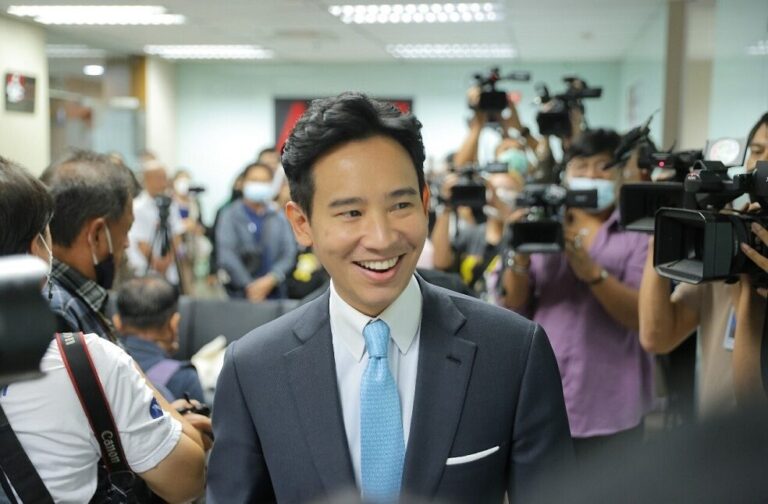Thailand: Thailand’s Election Commission has sought the intervention of the Constitutional Court to determine whether the leader of the progressive Move Forward Party, Mr. Pita Limjaroenrat, should be disqualified from parliament, as reported by media sources. The referral of the case occurred on Wednesday, just a day before the bicameral parliament was scheduled to vote on Mr. Pita’s candidacy for the position of Thailand’s next prime minister. Mr. Pita, a 42-year-old businessman, enjoys the support of eight parties within an alliance aiming to establish a new government.
Mr. Pita has encountered several challenges in his political journey, prompting the election commission to establish a special committee last month to investigate his eligibility for office. The commission concluded its probe and announced that they consider Mr. Pita’s status, according to the Thai Constitution, to be voided. The focal point of the investigation revolved around whether Mr. Pita knowingly violated election rules by holding shares in a media firm, which is prohibited for parliamentary candidates.
In response, Mr. Pita downplayed the issue, asserting that the shares had been transferred and that media firm was no longer an active media organization. If found guilty of breaching the rules, Mr. Pita could face disqualification, up to 10 years of imprisonment, and a 20-year ban from politics.

The timing of the Constitutional Court’s ruling remains uncertain, although a meeting was scheduled for 12th July 2023. Notably, even if Mr. Pita is suspended as a member of parliament, he would still be eligible to run for the position of prime minister. Move Forward, in a statement, criticized the election commission for hastily referring the case without affording Pita an opportunity to respond and refute the allegations.
In the May 14 election, Move Forward and another opposition party, Pheu Thai, achieved a resounding victory over rivals associated with the military, signifying a widespread rejection of the government led or supported by the country’s generals over the past nine years. The progressive party advocates for an anti-establishment agenda, which includes reducing the military’s political influence, dismantling monopolies, and reevaluating a contentious law concerning insults to the monarchy. These objectives clash with the interests of the royalist army and the long-established business elite, which has exerted significant political influence in Southeast Asia’s second-largest economy for decades.
This legal case against Pita Limjaroenrat echoes a similar incident involving the predecessor party, Future Forward, in 2019. The Constitutional Court had disqualified billionaire leader Thanathorn Juangroongruangkit as a member of parliament, triggering mass demonstrations by tens of thousands of young protestors demanding political reform.



